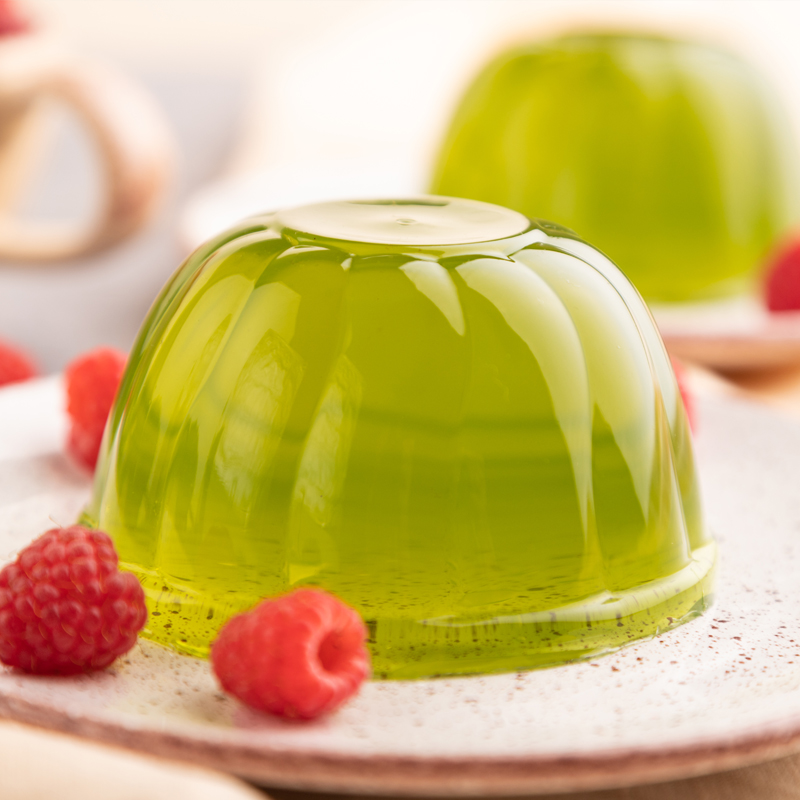
100 gr |
-- |
|
|---|---|---|
| Carbohydrate (gr) | 15.04 |
4928.47 |
| Protein (gr) | 3.59 |
1176.23 |
| Fat (gr) | 12.46 |
4083.43 |
| Fiber (gr) | 1.36 |
445.97 |
| Cholesterol (mg) | 14.64 |
4795.8 |
| Sodium (mg) | 325.27 |
106557.75 |
| Potassium (mg) | 392.16 |
128471.4 |
| Calcium (mg) | 78.15 |
25603.27 |
| Vitamin A (mg) | 46.04 |
15084.01 |
| Vitamin C (mg) | 6.16 |
2019.31 |
| Iron | 0.62 |
203.1 |
Gelatin is a semi-transparent, colorless, brittle, and nearly tasteless substance derived from collagen found in the skin and bones of animals. It is widely used as a gelling agent in food production, pharmaceuticals, photography, and cosmetic products. Substances containing gelatin or those with similar properties are often referred to as gelatinous.
As a hydrolyzed form of collagen, gelatin is classified as a food-grade ingredient and plays a crucial role in the texture and stability of many products. It is a key component in the manufacturing of gummy candies, jellies, marshmallows, and certain low-fat yogurts.
The calories of gelatin in 100 grams are 335 calories.
Gelatin is obtained by boiling animal bones, skin, and connective tissues to extract collagen, which is then processed into gelatin powder or sheets. The process involves:
The result is a protein-rich ingredient with exceptional thickening and gelling properties.
Gelatin is almost entirely protein, making it a nutrient-dense addition to diets focused on skin, joint, and bone health.
Food Industry
Pharmaceutical Industry
Cosmetic Industry
Photography & Other Applications
Supports Joint and Bone Health
Gelatin is rich in collagen peptides, which help strengthen joints, cartilage, and bones, reducing the risk of arthritis and osteoporosis.
Promotes Skin and Hair Health
The amino acids in gelatin contribute to skin elasticity and hair growth, preventing premature aging.
Aids Digestion and Gut Health
Gelatin helps repair the intestinal lining, improving gut health and aiding digestion.
Enhances Protein Intake
With over 85% protein content, gelatin is an excellent source of amino acids, making it beneficial for muscle recovery and overall health.
Gelatin is a versatile, protein-rich ingredient with applications in food, pharmaceuticals, cosmetics, and photography. Its gelling properties and health benefits make it a valuable addition to many products. While traditional gelatin is derived from animal collagen, plant-based alternatives like agar-agar are available for those following a vegetarian or vegan lifestyle.